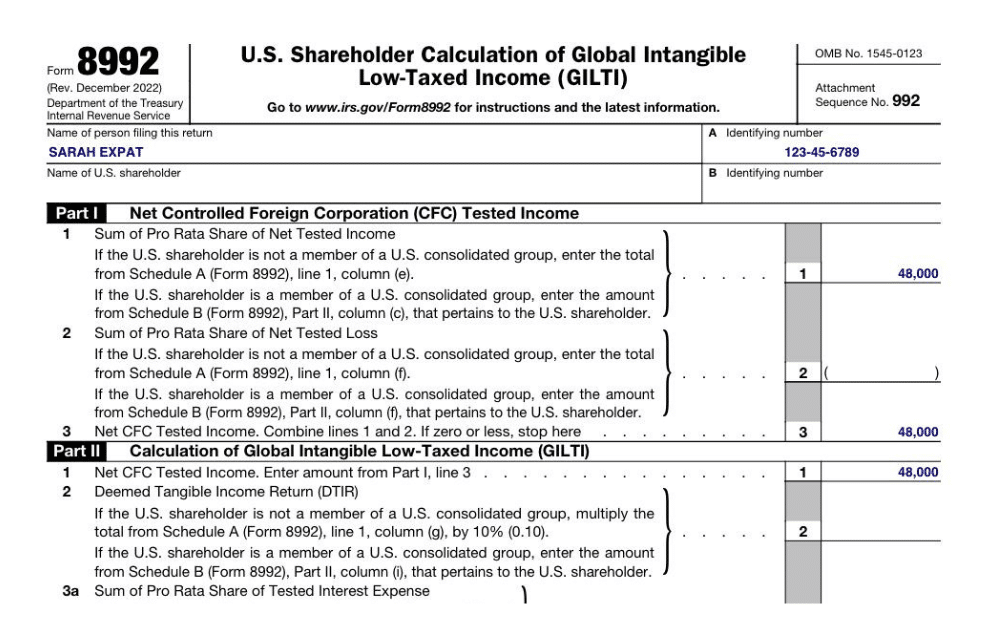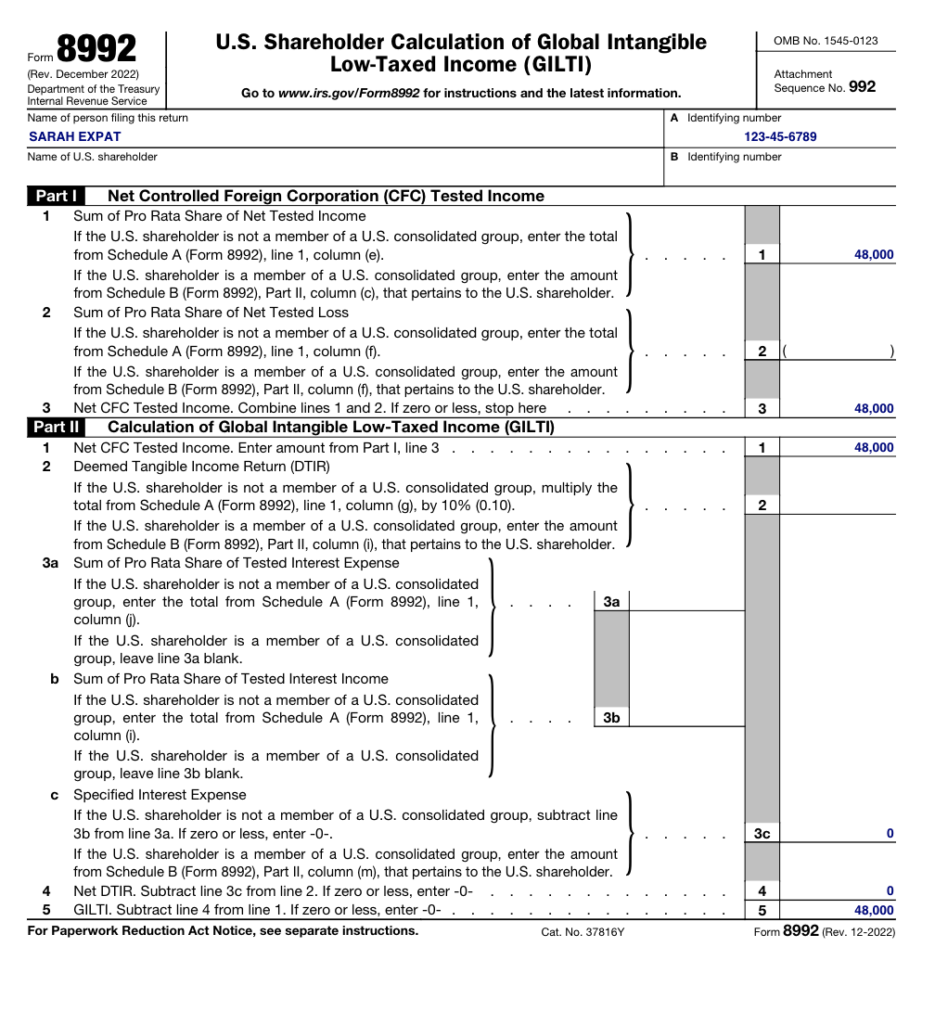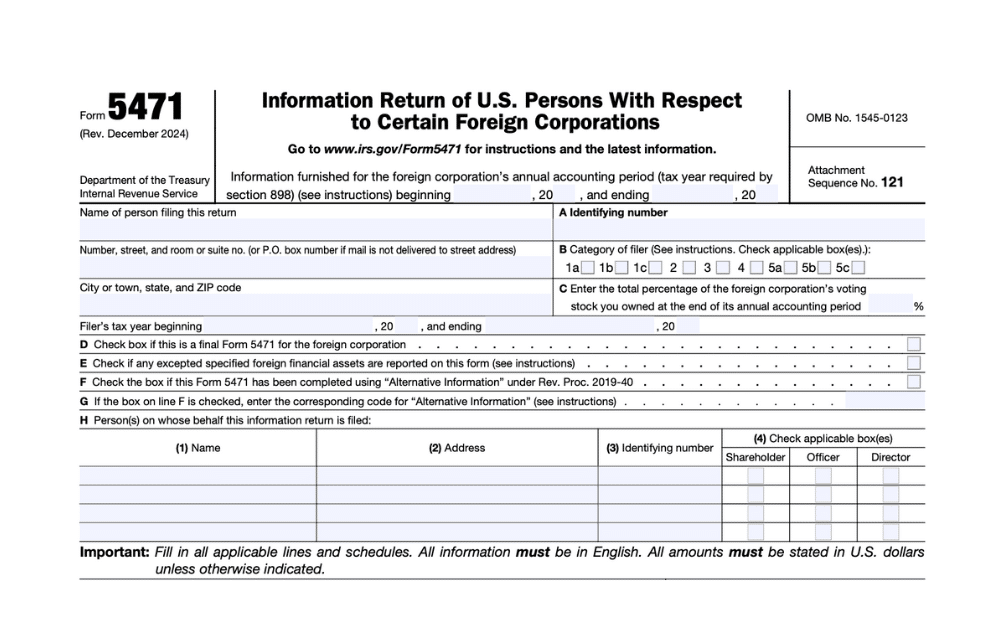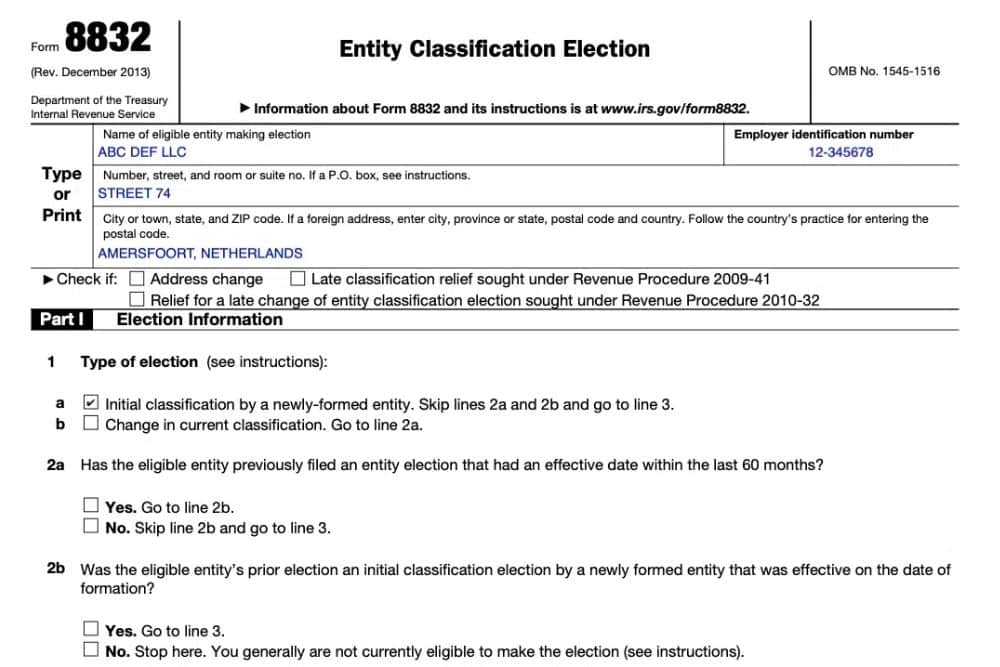What is GILTI? Your Guide to Global Intangible Low-Taxed Income for 2025

- What Does GILTI Mean?
- How Do GILTI Tax Rates Work in 2025 vs 2026?
- Who Is Subject to GILTI Tax?
- What Are My GILTI Strategy Options?
- When Should I Consider Disregarded Entity Status?
- How Is GILTI Calculated? A Step-by-Step Example
- What Forms Do I Need to File for GILTI?
- How Does the GILTI High Tax Exception Work?
- Should I Use GILTI Elections or Foreign Tax Credit Strategies?
- What Should I Know About the 2026 GILTI Changes?
- What Common GILTI Mistakes Should I Avoid?
- What Are My Next Steps?
According to recent IRS data, fewer than 7,000 US corporations reported GILTI inclusions in 2020, yet this tax affects thousands more American expat business owners who may not realize their obligations. Starting in 2026, GILTI rates increase to 12.6% under the One Big Beautiful Bill, but here’s the relief: most expat entrepreneurs can reduce or eliminate their GILTI tax through smart planning.
GILTI (Global Intangible Low-Taxed Income) is a US tax on foreign corporation profits that applies when you own at least 10% of a controlled foreign corporation. Despite its intimidating name, GILTI is manageable with the right strategy. The tax ensures the US captures income from foreign corporations, but multiple elections and exclusions can dramatically reduce or eliminate what you owe.
What Does GILTI Mean?
GILTI stands for “Global Intangible Low-Taxed Income,” but don’t let the complex name worry you. Starting in 2026, it will be renamed “Net CFC Tested Income” to better reflect what it covers.
Here’s what GILTI means for your situation: If you own at least 10% of a foreign corporation, the IRS taxes you annually on the corporation’s income, whether or not you receive dividends. This prevents US shareholders from deferring taxes indefinitely on foreign business profits.
What income counts as GILTI?
Almost everything your foreign corporation earns, except:
- Subpart F income (taxed under different rules)
- Income is already highly taxed abroad (through the high tax exception)
- Income connected to US business operations
- Certain oil and gas extraction income
Good news: The same 10% ownership threshold that triggers GILTI also requires Form 5471 filing, so if you’re already filing this form, you’re likely aware of your obligations.
How Do GILTI Tax Rates Work in 2025 vs 2026?
2025 Tax Year (Filed in 2026):
- Corporate GILTI rate: 10.5% effective rate
- Individual rate: Your regular income tax rate (10%-37%)
- Foreign tax credit: Up to 80% of foreign taxes paid
- Threshold to eliminate US tax: Approximately 13.125% foreign tax rate
2026 Tax Year and Beyond: The One Big Beautiful Bill permanently changes GILTI by reducing the Section 250 deduction from 50% to 40%, increasing the effective rate to 12.6%. The foreign tax credit improves from 80% to 90%, meaning you need foreign taxes of at least 14% to offset US GILTI tax completely.
Additionally, the deduction for 10% qualified business asset investment (QBAI) disappears, so that GILTI will apply to all returns, including those from tangible assets.
Who Is Subject to GILTI Tax?
You’re subject to GILTI if you’re a US person (citizen or resident) owning at least 10% of a controlled foreign corporation (CFC). This applies regardless of where you live—your US tax status matters, not your residence location.
The same ownership threshold requiring Form 5471 filing also triggers GILTI obligations, so most affected taxpayers already know they have reporting requirements.
What Are My GILTI Strategy Options?
Should I Choose Individual Taxation?
This is the default treatment where your CFC’s GILTI gets taxed at your regular income tax rates.
- When this works well: If your foreign corporation pays minimal taxes and you’re in a lower US tax bracket
- When to avoid: If you’re in high tax brackets or your foreign corporation pays significant taxes
- Example: Sarah owns a UK consulting company generating $100,000 in profit. In the 24% tax bracket, she pays $24,000 in US tax on GILTI, even though the UK corporation already paid corporate taxes.
Is the Section 962 Election Right for Me?
The Section 962 election lets you be taxed at corporate rates (21%) instead of individual rates, often providing substantial savings.
Key benefits:
- Lower effective tax rate (10.5% in 2025, 12.6% starting 2026)
- Can claim foreign tax credit for up to 80% of foreign corporate taxes (90% starting 2026)
- Often eliminates US tax entirely in higher-tax countries
Trade-off: Future dividends are taxable as regular income, not previously taxed income
Example: Mark owns a German corporation paying 26% corporate tax. With a Section 962 election, the foreign tax completely eliminates his US GILTI tax since it exceeds the required threshold.
Get the Free Download That Makes Filing Taxes Simple
"*" indicates required fields

When Should I Consider Disregarded Entity Status?
Available only for single-owner CFCs, this treats your corporation as a sole proprietorship for US tax purposes.
- Primary benefit: Can use the Foreign Earned Income Exclusion to exclude up to $130,000 (2025 amount) and avoid GILTI entirely
- Downside: Subject to 15.3% self-employment tax unless protected by a totalization agreement
- Example: John’s Irish company earns $80,000. With disregarded entity status, he excludes the full amount with the Foreign Earned Income Exclusion and owes $0 in US income tax.
Should I Form a US Corporation Structure?
Creating a US C-corporation to hold foreign shares works well for larger operations.
- Advantages: Lowest GILTI rate with Section 250 deduction and maximum foreign tax credit benefits
- Disadvantages: Multiple taxation layers and higher compliance costs
- Best for: Larger businesses with substantial revenue and complex operations
How Is GILTI Calculated? A Step-by-Step Example
Let’s walk through Sarah’s UK marketing consultancy to show how GILTI calculations work:
2025 Calculation (Current Rules):
- UK company gross income: $150,000
- Operating expenses: $30,000
- UK tested income: $120,000
- Less: 10% of QBAI (no qualifying assets): $0
- GILTI inclusion: $120,000
Without Section 962 Election:
- US tax at 24% rate: $28,800
- No foreign tax credit for corporate taxes paid
With Section 962 Election:
- GILTI taxed at 10.5% effective rate: $12,600
- UK corporate tax paid (19%): $22,800
- Foreign tax credit (80% of $22,800): $18,240
- Net US tax: $0 (foreign tax credit eliminates entire obligation)
Starting 2026: You’ll need foreign tax rates of at least 14% to completely eliminate US tax, up from the current 13.125% threshold.
Here is an example of the Form 8992 used for GILTI calculation

What Forms Do I Need to File for GILTI?
If you’re subject to GILTI, you’ll need these forms:
- Form 5471 (Information Return for Foreign Corporations)
- Form 8992 (GILTI Calculation)
- Form 8865 (if applicable for partnerships)
The filing deadline for expats is June 15 (automatic extension), which can be extended to October 15 if needed.
Critical: These forms carry significant penalties for late filing, up to $60,000 for Form 5471 alone. Don’t risk the penalties; file on time or request proper extensions.
How Does the GILTI High Tax Exception Work?
Income taxed at foreign rates above 90% of the US corporate tax rate (currently 18.9%) can be excluded from GILTI calculations through the high tax exception.
Countries where this often applies:
- Germany (26-33% rates)
- France (25-28% rates)
- Belgium (25% rate)
- Austria (25% rate)
This election must be applied consistently across all CFCs and can affect your Foreign Tax Credit availability.
Should I Use GILTI Elections or Foreign Tax Credit Strategies?
The best approach depends on your specific situation:
Choose Section 962 Election when:
- Your foreign corporation pays meaningful taxes (above 14% starting 2026)
- You’re in a high US tax bracket
- You don’t need current income distributions
Choose the disregarded entity when:
- Corporate income is below the Foreign Earned Income Exclusion limit ($130,000 for 2025)
- You’re in a low-tax foreign jurisdiction
- You qualify for self-employment tax exemptions under totalization agreements
Choose Foreign Tax Credit when:
- You have significant passive income
- Foreign tax rates are very high
- You need flexibility in claiming different benefits on different income types
What Should I Know About the 2026 GILTI Changes?
The One Big Beautiful Bill introduces permanent changes starting with the 2026 tax years:
Key updates:
- Higher effective rates: From 10.5% to 12.6%
- Better foreign tax credit: From 80% to 90% of foreign taxes
- Elimination of QBAI deduction: All income is subject to GILTI
- New name: “Net CFC Tested Income” replaces “GILTI”
Action needed: Review your current structure before year-end 2025 to ensure your strategy remains optimal under the new rules.
What Common GILTI Mistakes Should I Avoid?
Mistake 1: Assuming the Foreign Earned Income Exclusion protects against GILTI
The FEIE only applies to employment income, not corporate distributions or deemed distributions.
Mistake 2: Not making beneficial elections
Many expats pay unnecessary taxes by defaulting to individual treatment instead of electing corporate rates.
Mistake 3: Poor timing of corporate distributions
Taking dividends in years with GILTI inclusions can create double taxation without proper planning.
Mistake 4: Ignoring upcoming 2026 changes
Current planning decisions should account for higher rates and eliminate deductions starting in 2026.
What Are My Next Steps?
GILTI planning doesn’t have to be overwhelming. Here’s your clear action plan:
- Determine your GILTI exposure by reviewing foreign corporation ownership percentages
- Calculate tax under different elections to identify your optimal strategy
- Consider the 2026 changes in current planning decisions
- Implement proper elections before relevant deadlines
- Maintain compliance with all required forms and deadlines
With proper planning, most expat business owners can significantly reduce or eliminate their GILTI tax liability. The key is choosing and implementing the right strategy for your situation correctly.
If you’re ready to be matched with a Greenback accountant, click the get started button below. For general questions on expat taxes or working with Greenback, contact our Customer Champions.
This article is for informational purposes only and does not constitute tax advice. Individual circumstances vary, and you should consult with a qualified tax professional regarding your specific situation. Tax laws and procedures are subject to change.



